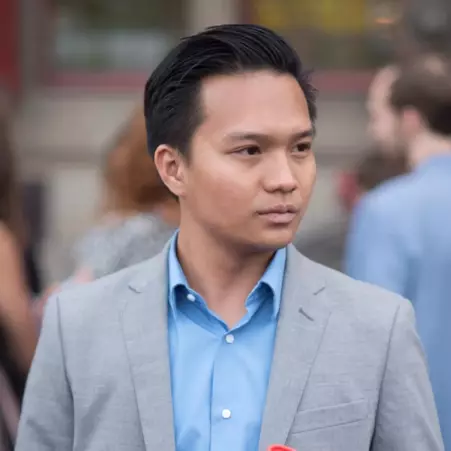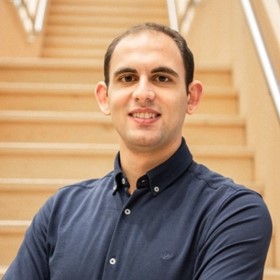Alumni MOT
Theodosis Athanasakis
Hello everyone,
I am Theodosis Athanasakis, a recent graduate from the MSc Management of Technology program. Let me share a quick overview of what I have been up to after finishing my master's studies.
Let's rewind a bit. During my studies, I got hands-on experience with a software platform and earned a certification. Thanks to this and my studies, I received a job offer. Consequently, right after graduating from TU Delft, I officially began my career as a Business Consultant in an IT Consultancy Company. Read more
In this role, we engage with clients seeking to digitally transform their businesses and operations. We identify their challenges and propose tailored solutions to meet their unique needs using the software I mentioned before.
Here are a few things you might be curious about:
Do I enjoy my job, and how does it connect with my MOT studies?
Absolutely. My job merges IT knowledge from my BSc in Computer Science with skills learned in my master’s, covering Digital Business Process Management, decision-making, stakeholder management, and soft skills from university projects.
Would I have gotten this job without certifications?
Maybe. I have friends who do similar work without certifications. Having them did help me stand out, but most juniors like me learn on the job without prior experience.
Is there a hidden catch in my journey?
None at all, except for the realization that these achievements were not overnight successes. The path to success demands personal determination and effort to figure out what you like and achieve your goals.
Riando Hotasi Sirait
Why did you choose MoT?
The reason was based on my previous work experience where I worked in the automotive industry in Japan. I was involved in innovation (EV) as the coordinator of cost planning, in which I worked closely with the project leader and various departments. During the project, I saw a lot of struggles in this project. Read more One of them is there were some hesitancies to develop this new project from various departments, particularly engineering, where most of them were unwilling to allocate their work time to develop EV due to busyness, reluctance to learn new technology, and uncertainty of the profitability. On the other hand, I also saw how this project was managed by top management. Basically, this project was directly under the CEO, which means the project leader directly reported to the CEO. This kind of structure was interesting to me. In conclusion, the struggles and structure I saw from the project made me want to learn how a big corporation develops innovation. These reasons motivated me to choose MoT as my master's degree.
How did MoT complement your engineering background?
Many parts. First, I learned the process of promoting and developing new technology in EV or Renewable Energy to be common technology. Especially in the current situation, EV and RE are hot issues as the sustainability solution. Secondly, the course complemented me from a financial perspective. Third, I was able to have a new view, such as ‘Responsible Innovation.’ And many more.
How have the MOT tools helped you in your current job?
Currently, I work as corporate planning, which involves a wide range of things, such as financial, planning, and strategy to solve issues. Financial tools from MoT helped me a lot in my job. In the future, I’m sure strategical thinking from MoT will help me provide strategic solutions to several issues, such as new business schemes in the EV sector and strategies to increase company profitability.
How has TU Delft supported you with your career?
Not so much. The reason was not that TU Delft didn’t support me, but mainly because I did not engage much with information from TU Delft. But, during my last year, I followed career development events, allowing me to learn from them!
What were the 3 crucial lessons you can share from your experience at TU Delft?
-
Sustainable transition and sustainable business
-
Innovation theory
-
Financial
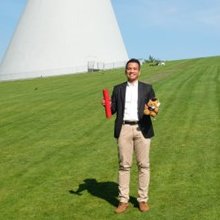
Muneeb Ijaz
Why did you choose MoT?
MOT offered the best combination of course selection such that I could build upon my existing engineering skills and gain new knowledge around management and entrepreneurship. I also found the program structure of MOT very attractive due to an evenly distributed workload across the first year and a half and then a good chunk of time for research and thesis development.
How did MoT complement your engineering background?
The course selection during the MOT program was very well balanced. I got to learn a lot of new things and also got some courses that improved my existing knowledge. More importantly, the teachings of all the courses were always linked back to engineering and technology.
How have the MoT tools helped you in your current job?
I am currently working as a data management consultant within the financial services industry. My day-to-day job includes working with clients to understand the issues with their data management strategy and provide solutions. MOT has given me good analytical skills such that I am able to reach the root cause of the surface level problem. Moreover, the ideas of Value Sensitive Design and responsible innovation have helped me make my solutions future proof for the clients.
How has TU Delft supported you with your career?
TU Delft directly has not been a huge source of support in my case. However, the connections that I made during my time at TU Delft and MOT have been very supportive. I got my first job due to the referral of a fellow from MOT. Similarly, other TU Delft fellows have also helped me at different stages of my career.
What were the 3 crucial lessons you can share from your experience at TU Delft?
- Connect with different people during MOT because that network will be very helpful in the future
- Make full use of the elective courses available to you and choose courses that you find interesting and that are in line with your future career goals
- Have fun! Make use of TU Delft’s diverse student body to meet new people from all over the world and make friendships that last forever ?
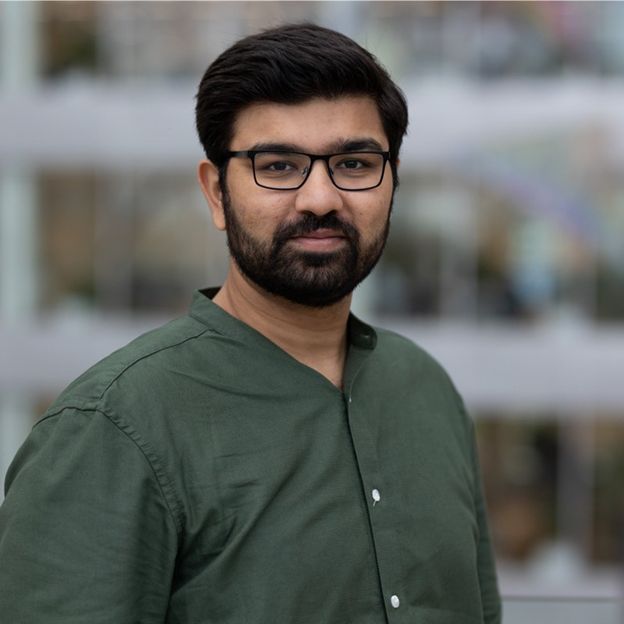
Kiran Gopalakrishnan
Why did you choose MoT?
Since my childhood, I’ve had multiple opportunities to display my leadership qualities. I never pass up a chance to take on new responsibilities or challenges that test my grit. These traits of mine really stood out during my work experiences, which is how I came to acquire a passion for management. All of these professional pursuits, meanwhile, were undertaken throughout my bachelor's program through internships, and I had no prior full-time work experience. I therefore continued to lack a professional perspective on the wider picture. While preparing for my bachelor's thesis, I came across numerous articles that emphasized the value of organizations employing the various technologies at their disposal to support strategic growth. However, those articles emphasized the need for businesses to comprehend the function that technology plays in each of their segments and in their overall operation. This was something that triggered the desire to pursue master's in technology management.
During my research phase, I was able to understand that the MoT program at TU Delft assists in obtaining a firm grasp on the applicability of any technology in a holistic manner. This mostly entails harmonizing the objectives and aims of an organization's multiple stakeholders and partners while striving for radical innovation. This technique stretches research skills beyond simply comprehending technical knowledge to assessing business potentials and value propositions connected with a technology. This was the unique selling proposition that helped me choose MoT.
How did MoT complement your engineering background?
I used to wonder how various stakeholders are involved in the pursuit of ground-breaking inventions even during my undergraduate years. For instance, the sustainable development objective of reducing dependence on non-renewable energy is greatly advanced by the construction of offshore wind turbines. It significantly alters the environment, though. Therefore, whenever a new technology advancement occurs, I usually begin to consider whether a framework for responsible innovation should be utilized to decide whether any alternative answers ought to be given much more weight.
I was able to hone my capacity to effectively explain challenges in a variety of styles with my master's. While communication is important, the following stage, problem-solving, actually requires other abilities. These include inventiveness, setting priorities, and making wise decisions to make sure challenges are solved successfully. Finding things out about people and circumstances can assist a person make the most of a team or handle management issues that, at first glance, seem difficult to solve.
How have the MoT tools helped you in your current job?
I want to emphasize the value of developing soft skills in this situation more so than hard skills. For effective teamwork and communication in the modern world, soft skills are crucial. This curriculum correctly ensures an individual's achievement in providing a positive view in an organization through several team projects in the majority of the courses it offers. When I reflect on those long team project sessions, I see how they have aided in my growth in emotional intelligence, time management, adaptability, and problem-solving abilities. Even though I recently started my first professional experience, I am already able to realize that soft skills can support establishing and maintaining relationships with colleagues. My efforts to make a difference within the organization have so far been greatly aided by empathy, active listening, and good verbal and written communication.
How has TU Delft supported you with your career?
The aphorism by Steve Jobs, “The only way to do great work is to love what you do,” is always stimulating to me. Since the MoT program allows students to create their own curriculum, it presents a special opportunity for an individual like me who has always had a variety of interests. I was able to focus on Supply Chain Management & Marketing during my master's (through multiple internships). In addition to my academic work, I started an internship at Philips for Marketing Insights & Analytics Personal Health (Mother & Child Care). My ambition to apply my technical knowledge and experience in technology management in marketing was ultimately where it all began.
There was no greater way that I could have imagined satisfying my passionate excitement and never-ending curiosity. By adjusting to the Dutch work culture during my internship, I was able to learn more about myself and advance both personally and professionally. My participation at a meeting regarding the software used for prenatal care was extended to me on my first day of work at Philips. I've always hoped to have a significant impact on pregnancy care, even if it isn't with cutting-edge technology. At that time, I read an intriguing article on the Philips Social Daily resource platform with the following quote: "Pregnancy is a period of many contradictory feelings, and it is particularly troublesome for first-time parents." This motivated me to perform a thorough investigation into numerous aspects of pregnancy in order to develop a unique and specialized thesis topic for my master's. The freedom this program and TU Delft provided, in my opinion, enabled me to follow my stimulation, aka "love what you do."
What were the 3 crucial lessons you can share from your experience at TU Delft?
Even though there have been many rewarding experiences, I will never stop emphasizing and teaching myself the three essential traits of passion, patience, and curiosity. Having a sense of passion for the things we do is crucial in this always changing world. We won't, however, always achieve the anticipated outcomes. The ability to be patient becomes important at that point. With patience, you may prevail in any fight. And finally, the trait of curiosity might result in the development of fresh approaches to winning. I am aware of how important it is to practice patience and keep my curiosity piqued in order to search for fresh opportunities to address the issues presented in my professional environment.
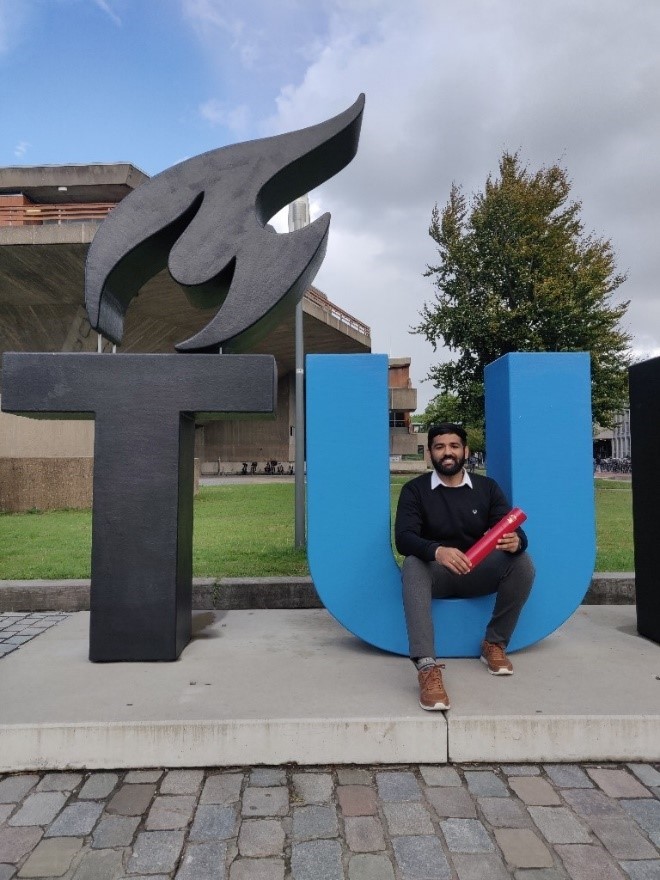
Vladimir Sobota (PhD)
Why did you choose to pursue a PHD?
In the first year of MOT, I did not seriously consider doing a PhD. It was only during my master thesis that I realized that there are many sides to doing research that I enjoy. Also, the prospect of having some autonomy in what I would like to research and what I want to learn was very appealing to me. I had worked / done internships in companies before, but I had never worked at a university. This new path hence seemed more exiting.
What is your main research topic?
My PhD research is on managerial and strategic aspects of technology platforms. I focus on the participation of users and complementors in technology platforms and the performance of technology platforms. You can find an overview here. Next to my PhD research, I work on projects on mission-oriented innovation policy and labour market flexibility.
How does TPM supports you for your PHD?
TPM is a pretty interesting place to work at. There are a lot of researchers around that work on more or less related topics and I have always found this diversity inspiring. More formally, there is the TPM graduate school that offers administrative support and courses on various topics such as career development.
What sort of prospects lie ahead for PHD aspirants?
There is no universal answer to this question – I think that career paths are as diverse as people are. The spectre of options is broad: some stay in academia, others work for governmental organizations or NGOs, and again others take up roles in the industry. I guess that you had hoped for a more concrete answer, but in my view, the specific options that PhD graduates will face depend on the research topic and to some extent on the network and contacts developed during the PhD.
What would your advice be for someone who wishes to pursue an academic career in management studies?
I guess that my advice is not limited to a career in management studies alone: Take your master thesis as a dry run. Find a topic that is challenging and interesting and select a supervisor you are eager to work with. During the thesis, ask yourself whether you like the way of working, the type of work, the topic, or the methodology. I have written my thesis at the university (not with a company), and I think that this helped me to get a feeling for academia (however, I would not advise against doing a thesis with a company). Should a specific research group or vacancy have caught your attention, then try to get a feel for the place. For instance, reach out and ask for a coffee chat with PhDs who work in the same group or are supervised by the same person.
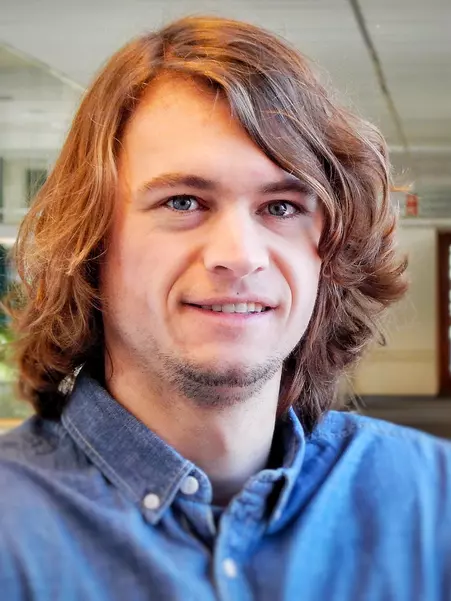
Aldy Gustinara (PhD)
There are at least four reasons for me to pursue a PhD at the TPM Faculty, TU Delft. First, my research interest intersects with the topic studied by some people at the TPM Faculty. I have been interested to understand the nexus of economic development, energy use, and carbon emission. This topic is studied in more than one research department in TPM. Still, I decided to work with my supervisor, Enno, from the Economics of Technology and Innovation (ETI) section because my interest tends to lean towards the 'economic' side of energy and emission than the 'physical' side of them. We agreed on the direction of my research, including the model that I use in my research (Environmentally-Extended Multi-Regional Input-Output model; EEMRIO).
Second, I had an overall positive impression of the TPM Faculty while I was a master's student in 2015. I was impressed with some of the subjects that were taught at that time, particularly those under the field of economics. I was also impressed by the research quality delivered by the researcher in TPM. This played an important role in shaping my plan to continue my PhD in TPM. The third reason might be a bit personal: I have started cultivating good relationships with some of the faculty members in the ETI section where I conducted my master thesis, including Prof. Cees van Beers and Dr. Servaas Storm, who supervised my master thesis, and Dr. Enno Schröder. Lastly, I am interested in the PhD program at TU Delft because it offers not only the supporting environment to conduct research and collaborate with high-caliber scholars but also the courses explicitly prepared for PhD students. These courses add values we might not get from doing research alone, in fact, some of the courses could support our research.
What is your main research topic? Did the MOT program motivate you for taking this topic?
My topic falls within the cluster of research that studies the relationship between economic development, energy, and emissions. Specifically, I study to what extent a country's production structure (technology) influences the amount of direct and indirect emissions released along the production chain and to what extent a country's consumption pattern (final demand) affects the emissions released outside of that country. I then explore some hypothetical scenarios to see, for instance, whether the conventional consumption-based emissions accounting can explain the north-south emissions transfer or whether moving towards cleaner production technology (e.g., by increasing the share of green electricity in the energy mix) could effectively result in less emission. The MoT program for sure inspired me in many ways. The program gave me a solid foundation to understand the role of technology around us and that it is inseparable from the functioning of our economy. But for me, what is unique about the program, and TPM in general is that it offered me the flexibility to choose a specialization and a thesis topic of my interest even if they 'belong' to other programs. For me, it all started with taking all of the economic courses taught by Dr. Servaas Storm, from which I gained knowledge in macro-and microeconomics as well as environmental economics. I then worked with him for my master thesis project, where I applied econometrics and learned decomposition analysis. The latter helped me to understand economic analysis in a more granular/sectoral way, an approach that is very useful for me in understanding the Input-Output analysis.
How does TPM support you in your PhD?
TPM supports me in many ways, but the most important one is the graduate school program that the faculty provides, including the doctoral education courses, mentorships, research peer groups, etc.
What sort of prospects lies ahead for PhD aspirants?
There are two career options: staying in academia or working outside the university. To stay in academia means to find an academic position after finishing your PhD. The most common way is to start with a post-doctoral program and apply for a tenure position after that. For the latter, it is similar to applying for a job in the industry after finishing your bachelor's or master's study. There are various positions or roles specifically targeted for PhD graduates, such as in the R&D department of a company, a business consultancy firm, a non-university research institution, or an NGO.
What were the 3 crucial lessons you can share from your experience at TU Delft?
First, you have to really find out about TPM and the programs it offers and how it relates to the future projection of your career. Second, finding out earlier about the specialization and research topic you want to take might help you a lot. I would suggest finding out earlier about the people in the faculty and what they research and specialization. Third, I think it is important to have a balanced life between working (or studying) and other activities besides it.
